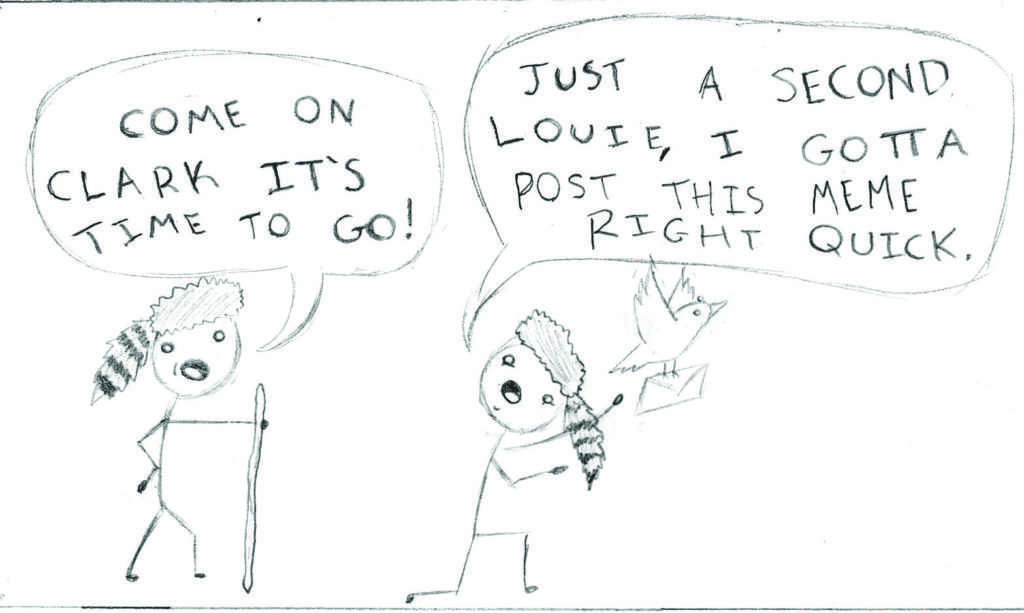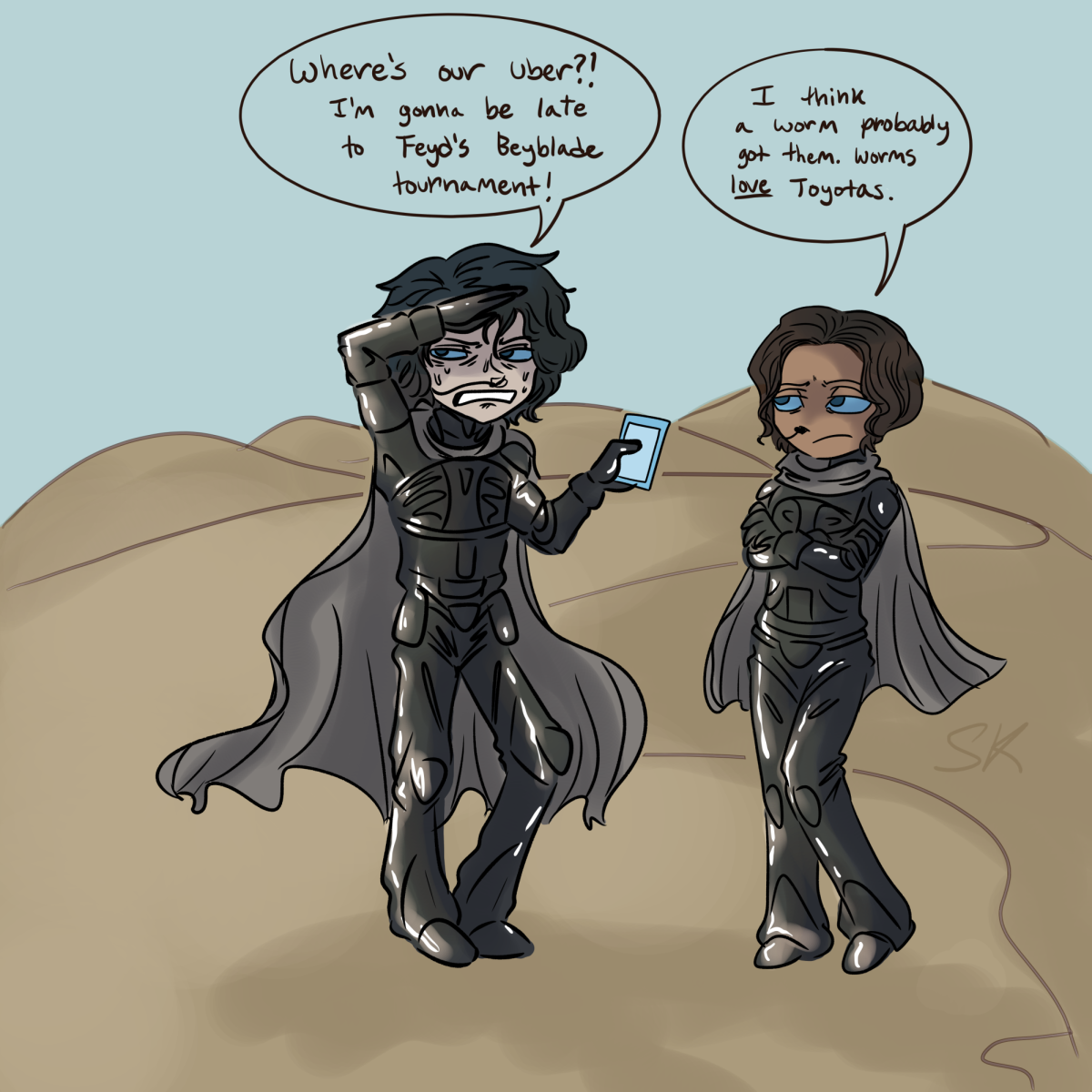If Lewis and Clark had spotted a rare Pepe during their expedition across the western United States, it would have taken weeks, or perhaps months for their discovery of its dankness to be shared with friends. If I spot a new Pepe meme, or even a savage tweet, my reaction can be transmitted immediately, along with a simultaneous share of the source itself. In the way that written word replaced the tradition of oral storytelling in the days of Lewis and Clark, so too has social media replaced the tradition of the written word.
What’s changed isn’t the language through which we write and communicate, but the form we do it in, and the earnestness with which we do it. When accounts of personal experiences and creative realities were propagated through oral traditions, they existed as intangible manifestations of existence, without the formal limitations of written word.
To “retell” a story was simply to use a different voice to tell the same story. Its permanence was dependent on the cycle of sharing maintained by alternative voices repeating the same story. A fireside story only became materialized when it was written down. Once this happened, or, literature was birthed, immaterial voices became embodied through letters and pages.
But we can’t discredit literature for transcribing the abstract into something concrete. The efficient sharing of meaningful cultural expressions was inevitable, and the manifestation of globally-followed interpretations of existence, like religion, has been vital for life.
What written word has done for the evolution of storytelling has been essential to how we understand our selves and the world we live in. Communicating our understandings has advanced too, from practiced oral traditions to disciplined letter-writing to spontaneous social media entries. Twitter and Facebook aren’t the originators of documenting our reactions through words, but they’ve affected the process by which we document.
In a way, social media sites are like campfires that we can all sit around and share our stories. But, what separates modern storytelling from oral traditions is that our campfire never goes out, and stories permanently perpetuate. Instead of maintaining the cycle through alternative voices, our stories survive by means of newsfeeds and homepages. This embodiment of voice, like that through literature, defines social media as a pseudo-literature.
If social media is both a flow of oral story, and a sink of written word, then how do we reconcile the organic nature of what we post, and the formal language through which we post it in? In other words, our responsibility as cognitive story-tellers lies in balancing emotional reactions and instinctual imperfections on globally
accessible platforms.
Since we’re accountable for what we say and what we share, we should be aware of how our “literature” may be perceived by future readers. We examine letters from notable figures like presidents, authors and artists not only to gain a sense of our culture through a historical lens, but because their written word is our only source into their lives. Similarly, our posts, tweets and shares are the pages of our own autobiographies.
Even though oral traditions have been replaced by written word, our individual voices still collectively define our culture. So, for the sake of future interpreters of our history, let’s be mindful of what we transmit online. We can all contribute to the anthology of “modern” literature by communicating something pure and reflexive with a sense self-reflection. But, when you do, share with sincerity and post with poise.

























